University Day Takes Reflective Tone
Posted on Oct. 13, 2021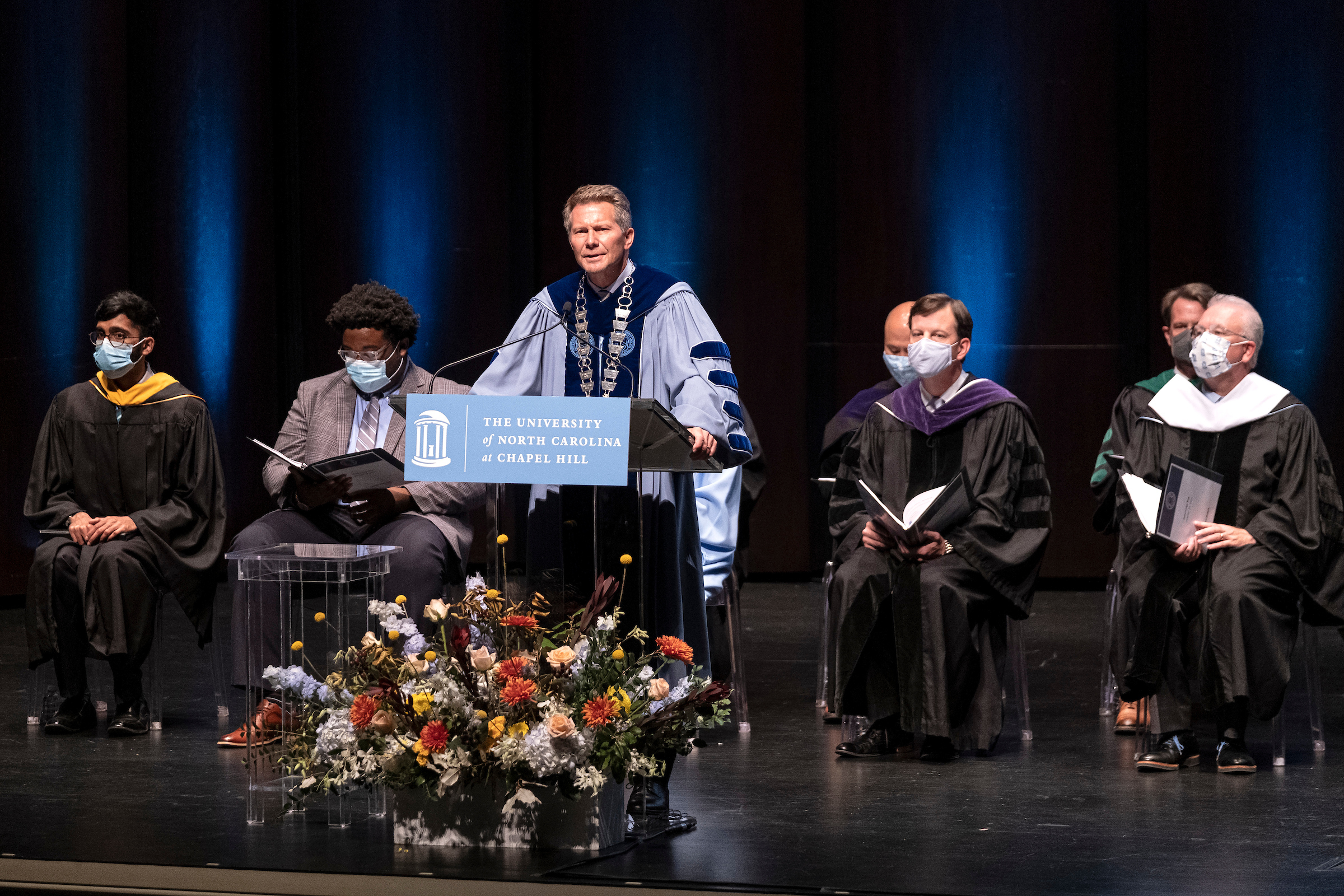
Chancellor Kevin M. Guskiewicz welcomes the audience for the observances of University Day. (Jon Gardiner/UNC-Chapel Hill)
With classes canceled for a day devoted to mental health, Carolina observed a somber 228th birthday that leaders called a time for reflection, reckoning and resilience.
Coming during not only a lingering pandemic but also a more acute mental health crisis on campus, University Day was held as classes were canceled and a Wellness Day observed on Tuesday to help the campus community heal after two student suicides in the past month.
“As chancellor, a professor and a parent, my heart breaks for all those whose suffering goes unnoticed,” Chancellor Kevin M. Guskiewicz said near the beginning of the Oct. 12 afternoon ceremony at Memorial Hall. He then asked the audience to observe a moment of silence.
On a stark stage with only the seal of the University as a backdrop and two sprays of fall flowers for decoration, faculty and staff leaders spoke of the dedication of University employees and their solidarity with students during this time of hardship, reported The Well, UNC’s campus news website.
“We are honored to teach and learn with you, to walk with you in triumph and in times of despair. You make all our work worth it,” said Faculty Council Chair Mimi Chapman ’97 (PhD).
Calling staff “the backbone of this University,” Employee Forum Chair Katie Musgrove ’15 reminded the audience that, during the pandemic, the staff-run Carolina Blood Drive was recognized by the American Red Cross as the largest single-day blood drive operation in the country. The audience broke into spontaneous applause.
Day of reckoning
The 228th anniversary of the University’s founding also occurred a day after a proclamation acknowledged that it was built on the homelands of Indigenous peoples and a week before a webinar exploring the contributions of its Unsung Founders, the “people of color bond and free” who built the campus.
Remarking that as an “openly queer Black person,” he attends an “institution that was built not for people that look like me, but by people that look like me,” Student Body President Lamar Richards questioned the celebration of the founding in his remarks. “Today, however, I do not call only for reflection, reckoning and a resetting, but a rebirth of the values we call our own.”
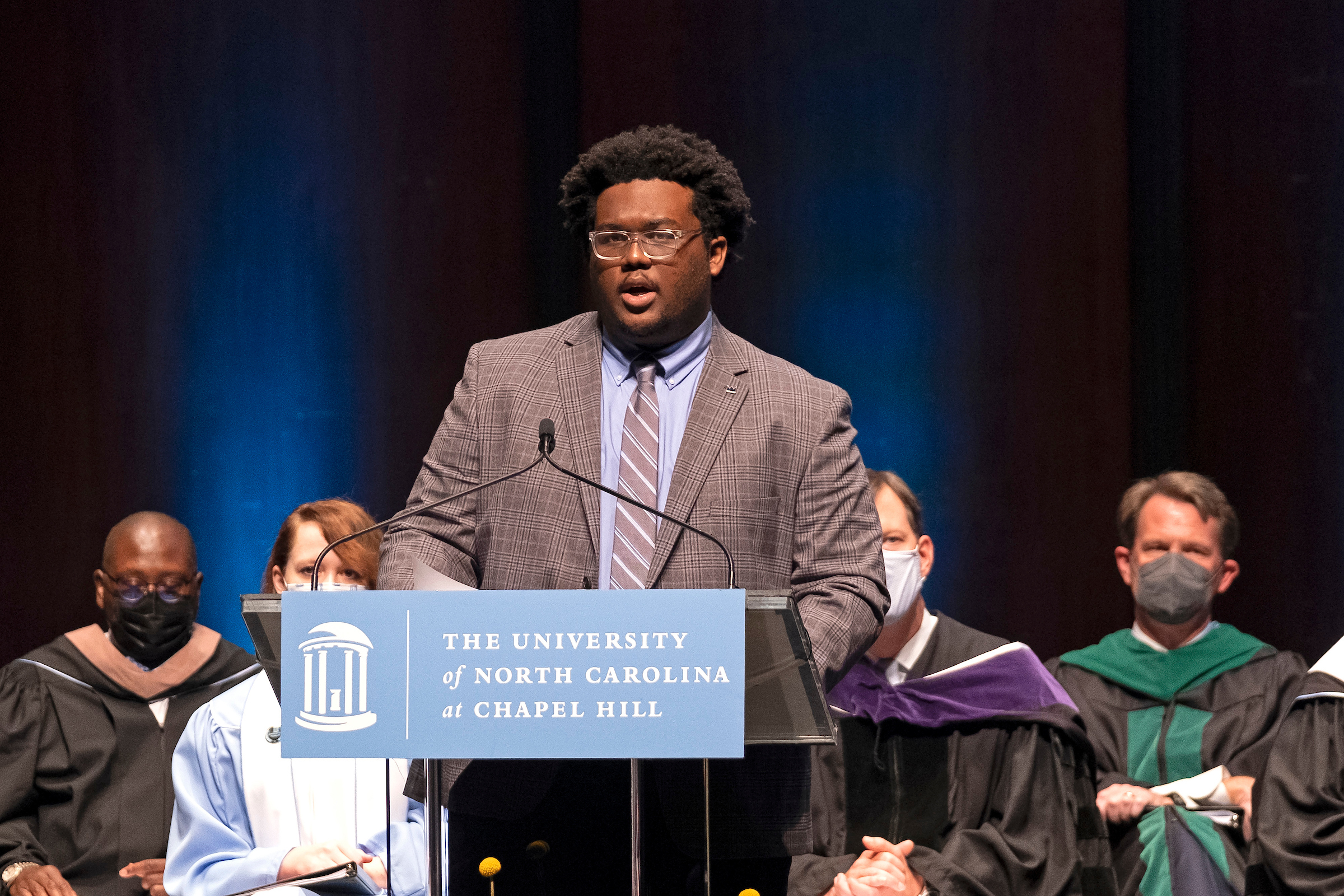
Student Body President Lamar Richards questioned the celebration of the founding in his remarks. (UNC/Jon Gardiner ’98)
David L. Boliek Jr. ’90, chair of the University’s Board of Trustees, spoke of Carolina’s resilience.
“To me, this day is about resilience,” he said. “I’ve thought of resilience as a process of adapting in the face of adversity, trauma, tragedy, threats or significant sources of stress. That certainly fits. Resilience can also bring around profound personal growth. And that is my hope.”
Echoing the theme of resilience and acknowledging the ongoing tension between preservation and progress at Carolina, keynote speaker UNC System President Peter Hans ’91 called the University “a resilient place.”
“You don’t make it to your 228th birthday without proving your ability to adapt, recover and reinvent, to change with the needs of a changing world,” Hans said.
The statewide system he leads, now in its 50th year, grew out of the founding of the nation’s first public university here in Chapel Hill. “It has taken longer than it should have in many cases, but the creation of a statewide system of higher education has steadily delivered on the promise that college, once reserved for a handful of our fellow citizens fortunate enough to spend time here in Chapel Hill, must be open to everyone,” Hans said.
UNC General Alumni Association Chair Dana Simpson ’96 (’00 JD) pledged alumni’s continued support to the University.
“We pledge to do all that we can to work with the chancellor, his administration, the faculty, the Board of Trustees, the UNC System Board of Governors and the North Carolina General Assembly to assure that our University and our UNC diplomas retain the recognition, value and prestige earned over the past 228 years,” Simpson said. “The GAA thanks all of you who are here today for your support, and we appreciate the opportunity to serve our University.”
Visionary faculty
In his remarks, Hans particularly honored two Carolina visionaries. The first was the late John Sanders ’50 (’54 JD), longtime director of what is now the School of Government, “who helped guide this place into the modern era.”
The second was coronavirus researcher Ralph Baric, recipient of the UNC System’s highest honor, the O. Max Gardner Award, recognizing one faculty member’s greatest contributions to the welfare of the human race. Baric, William R. Kenan Jr. Distinguished Professor in the department of epidemiology and professor in the department of microbiology and immunology in the Gillings School of Global Public Health, received a standing ovation along with his award.
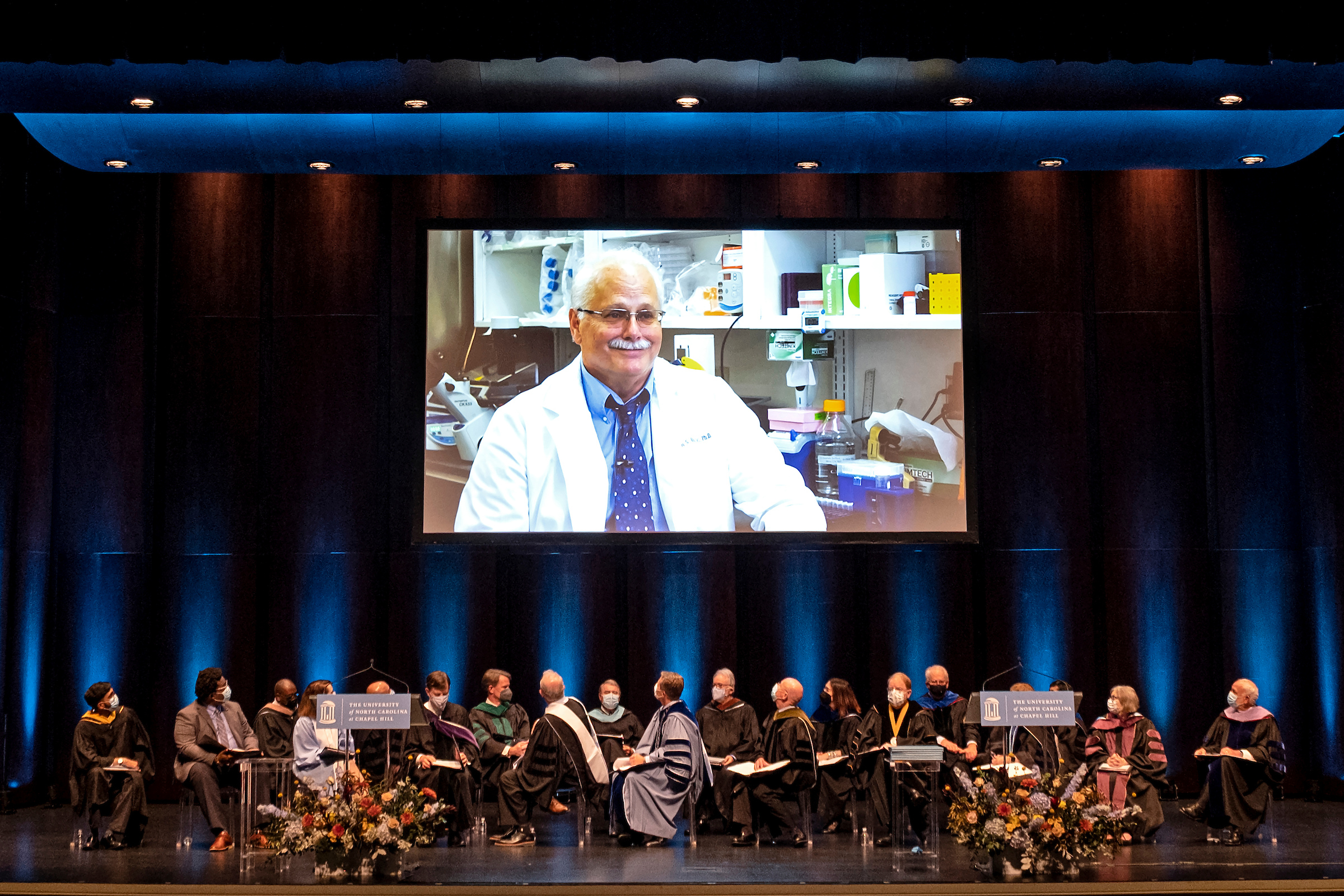
A short video introduced coronavirus researcher Ralph Baric, recipient of the UNC System’s highest honor, the O. Max Gardner Award. (UNC/Jon Gardiner ’98)
“One of the reasons he’s especially deserving of the Gardner Award is his eagerness to engage and use this high-profile moment as a chance to teach all of us how science works; how collaboration across disciplines, institutions and borders benefits all of us; and how steady support of basic research leads to a safer, more prosperous world,” Hans said.
The award citation praised Baric for the “basic studies and models [that] seeded the development and testing of many countermeasures used to treat or control emerging coronavirus and norovirus infections, and especially SARS-CoV-2” and his role in the development and rollout of the Moderna vaccine, used by millions in the United States.
University Day is also when Carolina presents its Distinguished Alumna and Alumnus Awards. This year’s recipients are:
-
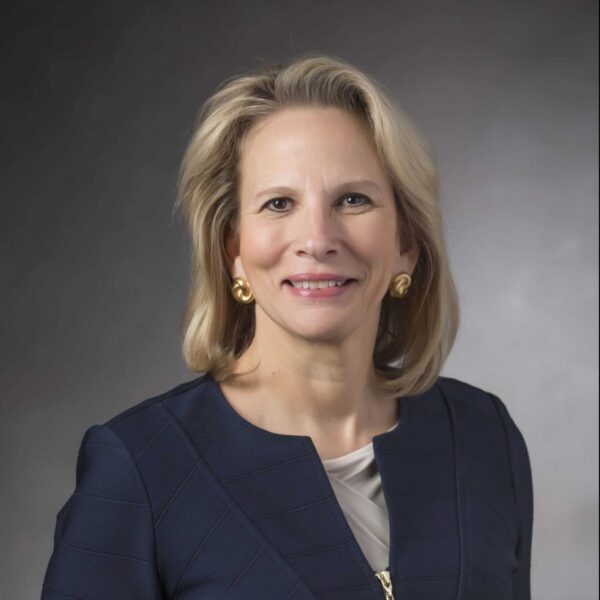
Michele Gross Buck ’87 (MBA)
Michele Gross Buck ’87 (MBA), chairman of the board, president and CEO for The Hershey Co. Buck has 30 years of consumer-packaged goods experience and a demonstrated track record of building iconic brands, strong teams and sustainable businesses. As the company’s first female CEO, she is responsible for Hershey’s strategic direction, global operations and commercial activities. Prior to joining Hershey in 2005, she was an officer at Kraft and held various senior positions during her 17-year tenure there. She is lead independent director on the Board at New York Life. In 2020, she was included on FORTUNE magazine’s list of the 50 Most Powerful Women in Business. A native of central Pennsylvania, Buck earned a bachelor’s degree from Shippensburg University in 1982 and an MBA from UNC’s Kenan-Flagler Business School in 1987.
-
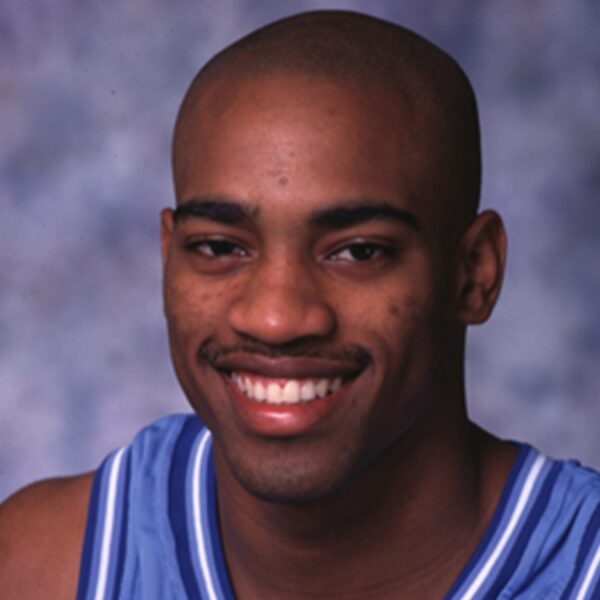
Vincent L. Carter ’99
Vincent L. Carter ’99, ESPN NBA analyst and former professional basketball player. Carter was an eight-time All-Star in the NBA and a two-time All-NBA Team selection. He is the only player in NBA history to play 22 seasons over four decades, from his debut in 1999 to his retirement in 2020. A high school McDonald’s All-American, Carter played for three years with the Tar Heels and twice advanced to the Final Four of the NCAA Tournament. He was selected with the fifth overall pick in the 1998 draft by the Golden State Warriors. He was traded to the Toronto Raptors, where he emerged as a star, winning the 1999 NBA Rookie of the Year Award and the Slam Dunk Contest at the 2000 NBA All-Star Weekend. He represented the United States in the 2000 Summer Olympics, where the team won a gold medal. In 2004, Carter was traded to the New Jersey Nets and also has played for the Orlando Magic, Phoenix Suns, Dallas Mavericks, Memphis Grizzlies, Sacramento Kings and Atlanta Hawks. He received the Twyman-Stokes Teammate of the Year Award in 2016. Off the court, Carter established the Embassy of Hope Foundation, assisting children and their families in Florida, New Jersey and Ontario. He was recognized in 2000 as Child Advocate of the Year by the Children’s Home Society, and he received the Florida Governor’s Points of Light award in 2007 for his philanthropy in his home state.
-
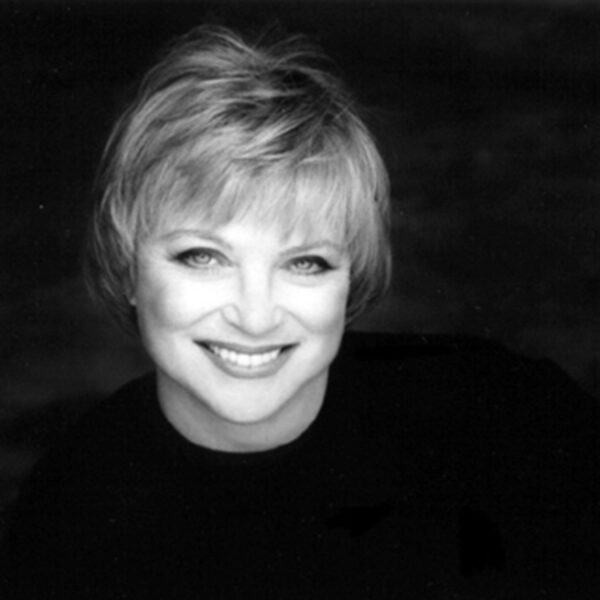
Estelle Louise Fletcher ’57
Estelle Louise Fletcher ’57, Academy Award-winning actress. Fletcher is perhaps best known for her skillfully underplayed portrayal of the rigidly authoritarian Nurse Ratched in the 1975 film One Flew over the Cuckoo’s Nest, which earned her the Academy Award for best actress. After earning a bachelor of arts from Carolina, Fletcher moved to Los Angeles to begin her acting career. She soon found work making guest appearances on such television shows as Bat Masterson, Maverick, The Untouchables and Perry Mason. In 1963, Fletcher made her film debut in A Gathering of Eagles, though her role was uncredited. Soon after, she decided to retire from acting and devote herself to her family. Several years later, director Robert Altman persuaded her to appear in his 1974 film Thieves Like Us. Her performance caught the attention of director Milos Forman, and he cast her as Nurse Ratched. In addition to winning an Oscar for the performance, she received a BAFTA award and a Golden Globe. Fletcher continued to appear in films and TV shows over the next decades, and in 1996 she was nominated for an Emmy Award for a guest appearance on the series Picket Fences. Fletcher received a second Emmy nomination for a 2004 guest role on Joan of Arcadia, and she later played recurring characters on ER, Heroes, Private Practice, Shameless and Girlboss. In 2007, Fletcher was recognized by her alma mater with the PlayMakers Distinguished Achievement Award.
-
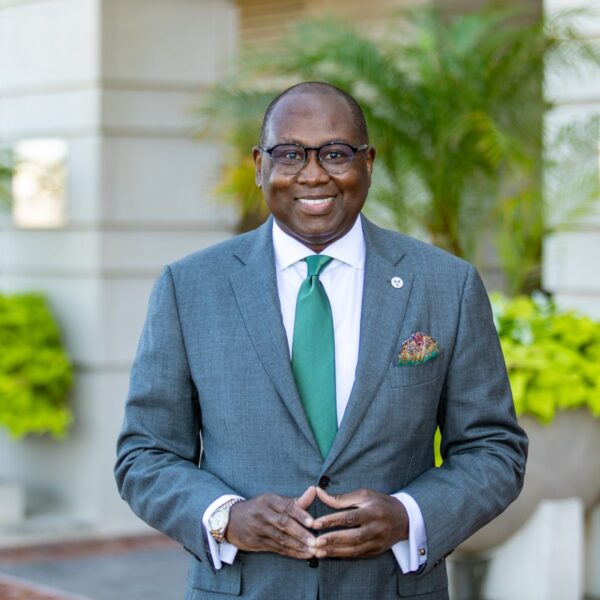
Rodney E. Hood ’89
Rodney E. Hood ’89, immediate past chairman and current board member of the National Credit Union Administration, the federal agency that regulates, charters and insures America’s credit union system. When Hood was named NCUA’s 11th chairman in 2019, he was the first Black American to ever lead a banking regulatory agency. As chairman, Hood prioritized financial inclusion and wholeness, which he has called the civil rights issue of our time. Previously, Hood served as a corporate responsibility manager for JPMorgan Chase, managing national partnerships with nonprofit organizations, financial regulators and community stakeholders to promote financial inclusion and shared prosperity in underserved communities. His prior experience includes serving as associate administrator of the Rural Housing Service at the U.S. Department of Agriculture. In this role, he helped to address the housing needs in rural communities and administered the agency’s $43 billion mortgage portfolio. Hood has shared his time and expertise with institutions of higher education in North Carolina, including service on the Board of Governors for the UNC System, the Board of Visitors for UNC and the Board of Trustees for the UNC School of the Arts. He has also served on the Board of Trustees for the North Carolina Museum of Art. A native of Charlotte, Hood holds a bachelor’s degree from Carolina in business, communications and political science. While a student, he was a member of the Undergraduate Honor Court and was inducted into the Order of the Old Well.
-
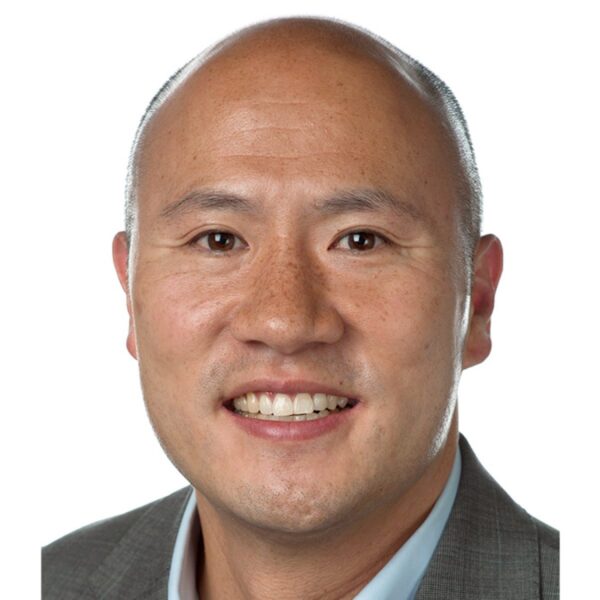
Eugene Y. Lao ’91
Eugene Y. Lao ’91, chief legal officer, Prime Core Technologies, and a current member of the GAA Board of Directors. Lao earned a bachelor’s degree psychology, global studies and East Asian studies from Carolina. He went on to earn a law degree and master of laws in international and comparative legal studies from Duke University School of Law. He began his legal career as an associate with the Hong Kong office of Hunton & Williams, where he was part of the project development and finance team, before being named Asia-Pacific regional general counsel at Yahoo!. He went on to hold deputy general counsel roles at Zynga, Ten-X (formerly known as Auction.com) and DocuSign before being named general counsel at Reltio. Currently, Lao is chief legal officer for Prime Core Technologies Inc., headquartered in the San Francisco Bay area. While at Carolina, Lao was a founder and president of the Asian Students Association and was recognized with the Chancellor’s International Leadership Award. He was also a member of the UNC Honor Court and the Order of the Grail-Valkyries. In 2020, he was awarded the Alumni Diversity Award. Lao is a member of Carolina’s Alumni Committee on Racial & Ethnic Diversity and a member of the GAA Board of Directors. He previously served on the UNC Global Advisory Board.
-
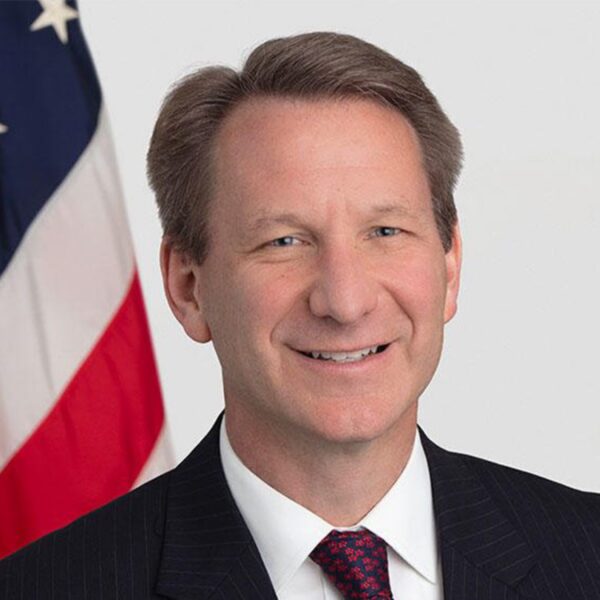
Dr. Norman E. Sharpless ’88 (’93 MD)
Dr. Norman E. Sharpless ’88 (’93 MD), director, National Cancer Institute. Sharpless came to UNC in 1984 as a Morehead Scholar and stayed to earn a medical degree with honors, followed by residency and a fellowship at Massachusetts General Hospital and the Dana Farber Cancer Center in Boston. He returned to UNC in 2002 as an assistant professor of medicine and genetics. By 2011 he was a full professor and received the title of Wellcome Distinguished Professor in cancer research. In 2014, he was named director of the UNC Lineberger Comprehensive Cancer Center. Sharpless’s time in academia was productive, as evidenced by his 10 patents and numerous scholarly publications in scientific journals. All the while, he mentored many physician-scientists who have found success in both academia and industry. In 2017, Sharpless was appointed to lead the National Cancer Institute at the National Institutes of Health. For a short time, he served as the acting commissioner for food and drugs at the U.S. Food and Drug Administration. In both of these roles, Sharpless has worked to promote public health and prevent cancer. As leader of the National Cancer Institute, he developed a comprehensive plan aimed at accelerating therapies for childhood cancer, modernized NCI-supported clinical trials and developed research initiatives in many significant areas, including immunotherapy and global oncology.
-
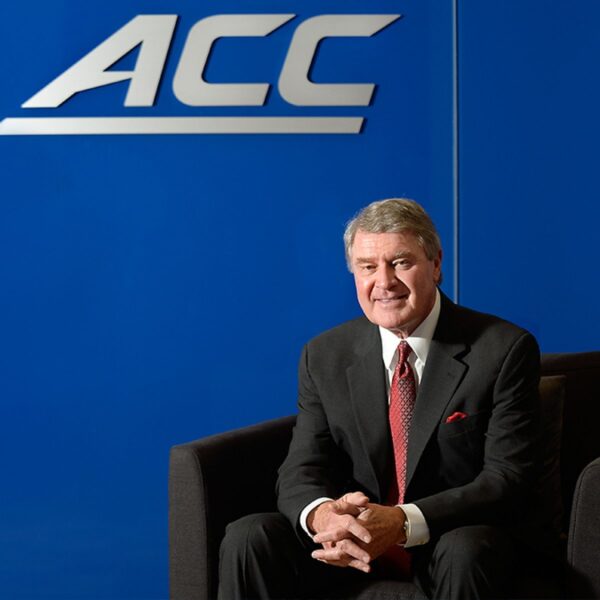
John D. Swofford ’71
John D. Swofford ’71, retired commissioner of the Atlantic Coast Conference. The longest-tenured commissioner in the 67-year history of the Atlantic Coast Conference, retired last June after 24 years in that role. As the fourth commissioner of the ACC, Swofford guided the league to unprecedented stability, success and growth, expanding from nine to 15 members. Over the last 23 years, the ACC has been at the forefront of college athletics, winning 92 national team titles in 19 of the league’s 27 sponsored sports. Beyond athletics, the league continues to set the standard academically by leading all conferences in nearly every comparison. A native of North Wilkesboro, Swofford attended UNC on a Morehead Scholarship as part of head coach Bill Dooley’s first football recruiting class. In 1980, at age 31, Swofford was named Carolina’s athletics director, a post he held for 17 years. During his tenure, the Tar Heels won more ACC and NCAA championships than under any other athletics director in ACC history, a record that still stands. In 1994, Carolina won the Sears Director’s Cup, awarded to the top overall athletics program in the nation, the only ACC program to ever win that award. Swofford is a member of five Halls of Fame: the National Association of Collegiate Directors of Athletics Hall of Fame, North Carolina Sports Hall of Fame, North Carolina High School Athletic Association Hall of Fame, Chick-fil-A Bowl Hall of Fame and Wilkes County Hall of Fame. He holds a master’s degree in athletics administration from Ohio University.
-
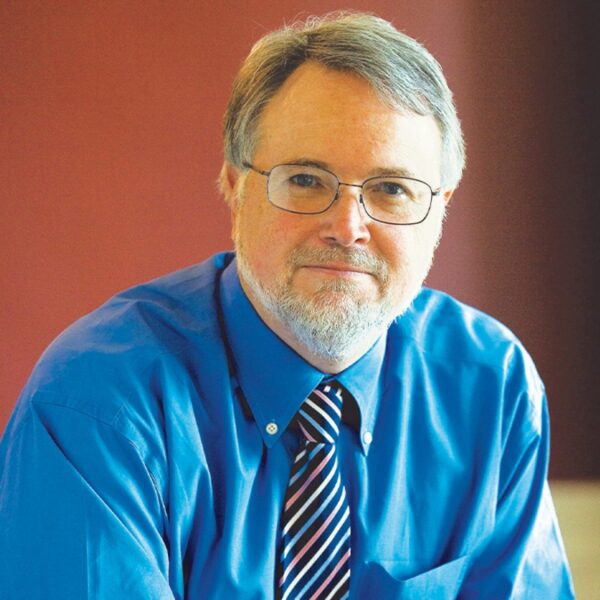
Julian D. Wiles Jr. ’76 (MFA)
Julian D. Wiles Jr. ’76 (MFA), playwright, director, designer and educator. In 1978, Wiles founded Charleston Stage, which became the resident company of the Historic Dock Street Theatre. Charleston Stage has grown into one of the region’s largest and most respected arts institutions and includes an education program that reaches over 25,000 young people annually.Wiles grew up on a farm in South Carolina and earned his undergraduate degree from the College of Charleston. He came to UNC to study theatrical design. Over the course of his career, Wiles has designed, directed and produced over 300 plays and musicals for Charleston Stage. He has written 34 original plays, musicals and stage adaptations, eight of which are licensed by Dramatic Publishing. More than 100 productions of his published works have been performed across the country and internationally. Many celebrate South Carolina’s rich cultural history, including the musical Gershwin at Folly, which explores how George Gershwin’s 1934 trip to Charleston influenced Porgy and Bess; The Seat of Justice, which chronicles South Carolina’s pivotal role in the landmark Brown v. Board of Education decision; and Denmark Vesey: Insurrection, focused on the alleged 1819 Charleston slave rebellion. Wiles has received the National Youth Theatre Director’s Award, Charleston’s NAACP Special Recognition Award and South Carolina’s Governor’s Award for the Arts. He is a member of the South Carolina Theatre Association’s Hall of Fame.
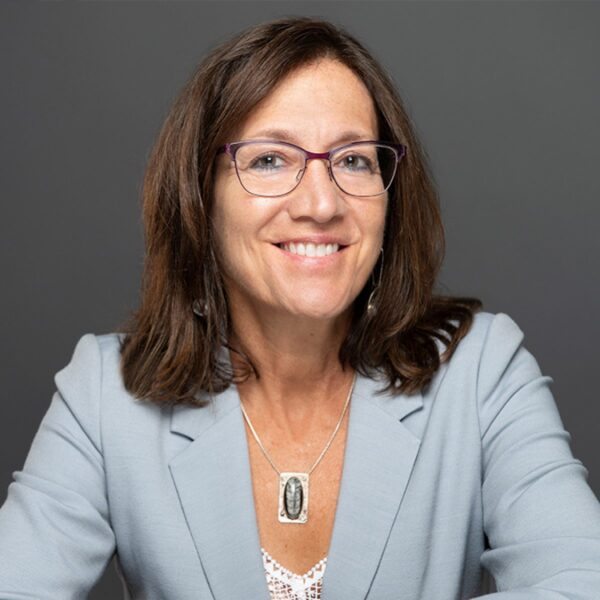
Kathryn E. Moracco ’92 (MPH, ’99 PhD)

Patricia Harris
Awards also were presented to other members of the faculty and staff:
- The Edward Kidder Graham Award to Kathryn E. Moracco ’92 (MPH, ’99 PhD), associate professor at UNC’s Gillings School of Global Public Health and associate director of the UNC Injury Prevention Research Center.
- The Rebecca Clark Award for Moral Courage to Patricia Harris, director of recruitment at UNC’s School of Education and previous vice chair of the Carolina Black Caucus.
